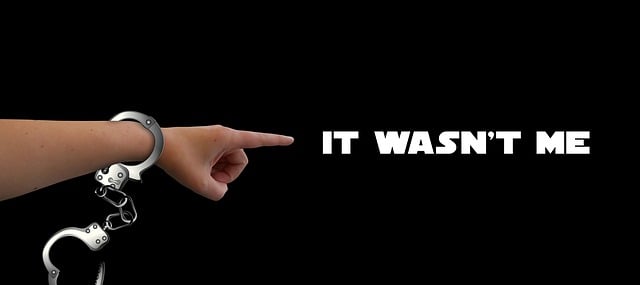Regulatory fraud laws protect consumers and investors from deceptive practices, with skilled general criminal defense attorneys offering vital guidance. These lawyers specialize in navigating intricate legal terrain, providing tailored risk mitigation strategies, and ensuring rights protection. Legal advice for defective product claims is crucial, as it enables businesses to maintain ethical conduct while securing favorable outcomes in complex litigation. Through case studies, professionals learn from past experiences, fortifying defenses nationwide and minimizing regulatory non-compliance risks. This proactive approach safeguards reputations and financial stability.
Regulatory fraud laws play a pivotal role in protecting consumers and ensuring market integrity. This comprehensive guide delves into the intricate world of these laws, offering a detailed understanding of their application in defective product claims. From the legal framework governing such cases to effective enforcement strategies and real-world case studies, it provides valuable insights for businesses and consumers alike. For those seeking legal advice on defective product claims, this article is an indispensable resource.
- Understanding Regulatory Fraud Laws: A Comprehensive Overview
- Legal Framework for Defective Product Claims
- Strategies for Effective Enforcement and Prevention
- Case Studies: Real-World Examples and Lessons Learned
Understanding Regulatory Fraud Laws: A Comprehensive Overview

Regulatory fraud laws are designed to protect consumers and investors from deceptive practices by businesses and individuals. These laws cover a wide range of activities, including false representations, material omissions, and misleading advertising. Understanding these regulations is crucial for both businesses aiming to comply and individuals seeking legal advice for defective product claims.
Legal professionals specializing in general criminal defense can guide clients through all stages of the investigative and enforcement process. With an unprecedented track record of success, they ensure that rights are protected and justice is served. By staying abreast of changes in regulatory fraud laws, these experts can offer tailored strategies to mitigate risks and navigate complex legal landscapes.
Legal Framework for Defective Product Claims

The legal framework for defective product claims is a complex web that requires meticulous navigation. When consumers are harmed by faulty products, seeking legal advice for defective product claims becomes imperative to ensure justice and compensation. The process involves understanding stringent regulations and consumer protection laws designed to hold manufacturers and distributors accountable.
Many countries have established robust legal systems to address these issues, providing a framework for product liability suits. This often includes strict criteria for proving negligence, defectiveness, and causation. Achieving extraordinary results in such cases demands meticulous documentation, expert testimony, and a deep understanding of the law. An experienced attorney specializing in defective product claims can guide clients through this challenging landscape, aiming to secure favorable outcomes, including winning challenging defense verdicts for his clients.
Strategies for Effective Enforcement and Prevention

To ensure effective enforcement and prevention of regulatory fraud laws, a multi-faceted approach is crucial. Legal professionals play a pivotal role by providing specialized legal advice for defective product claims. This involves thorough investigations into compliance issues and potential fraudulent activities, which can range from false advertising to unsafe products. By offering guidance at all stages of the investigative and enforcement process, lawyers help businesses navigate complex regulations and mitigate risks.
Strategic interventions include enhancing internal controls, implementing robust compliance programs, and fostering a culture of ethical conduct. Companies should adopt transparent practices and encourage employees to report suspicious activities without fear of retaliation. Moreover, regular training sessions on regulatory updates can equip staff with the knowledge to recognize and prevent fraudulent schemes. These measures create a formidable defense across the country, ensuring that businesses operate within legal boundaries and protect consumers from harmful products or practices.
Case Studies: Real-World Examples and Lessons Learned

In navigating regulatory fraud laws, case studies offer invaluable real-world examples and lessons learned. Examining past cases helps businesses and legal professionals anticipate potential pitfalls and implement robust compliance strategies to avoid similar outcomes. For instance, several high-profile instances of fraudulent accounting practices have led to significant penalties and even complete dismissal of all charges for those involved in white collar defense. These studies highlight the importance of accurate financial reporting and transparent corporate governance.
Moreover, understanding these cases provides crucial insights into how legal advice for defective product claims can be effectively utilized. Businesses should seek counsel from experienced attorneys who specialize in regulatory fraud to ensure adherence to evolving laws and standards. By learning from historical examples, companies can foster a culture of ethical conduct and minimize the risk of regulatory non-compliance, ultimately safeguarding their reputation and financial stability.
Regulatory Fraud Laws play a pivotal role in safeguarding consumers and ensuring business integrity. By understanding these laws, companies can implement robust strategies for effective enforcement and prevention. Seeking legal advice for defective product claims is essential to navigate the complex regulatory landscape. Case studies from real-world examples offer valuable lessons learned, underscoring the importance of compliance and the significant impact of fraudulent practices on both businesses and consumers.






